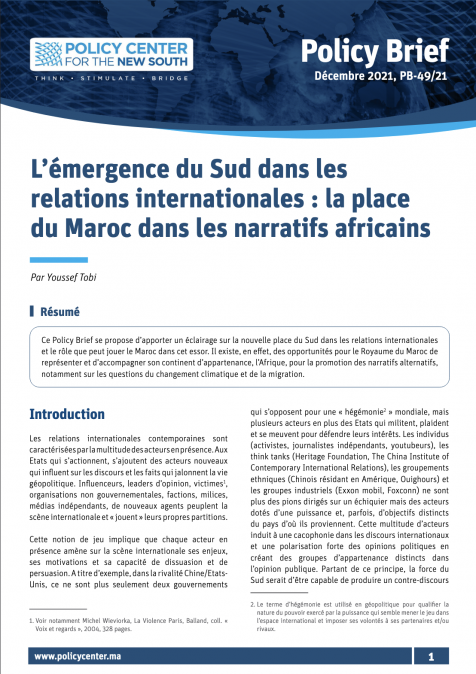Podcasts
La COP, sauvera-t-elle le climat ?
Carole Mathieu, chercheure au Centre Énergie de l’Ifri, analyse les enjeux de la COP25 et les contraintes des approches adoptées dans les mobilisations internationales en faveur du climat. En effet, l’accord de Paris vise l’universalité, contrairement au protocole de Kyoto qui a été contraignant que pour les pays développés, et invite toute la communauté internationale à formuler des engagements en vue de converger vers une trajectoire collective pour la réduction du gaz à effet de serre et au changement climatique. Depuis 2015, les négociations climatiques se sont poursuivies. Même si les grands principes ont été acceptés par tous, il faut ensuite définir les règles de mise en œuvre de façon précise pour une application efficace des accords. En outre, Carole accentue son analyse notamment sur les contraintes à caractère juridique portant sur le respect de la transparence et les processus d’actualisation des contributions nationales et des règles opérationnelles qui interviennent tous les cinq ans. En revanche, le niveau d’ambition de chaque pays ainsi que la crédibilité des mesures qui y sont associés sont finement analysés par Carole qui met en lumières d’abord les motivations du rapprochement stratégique USA-Chine derrière l’aboutissement aux Accords de Paris pour ensuite analyser les répercussions du retrait des Etats Unis et leurs nouveaux paramètres climatiques contrairement au leadership climatique prôné par l’UE.









